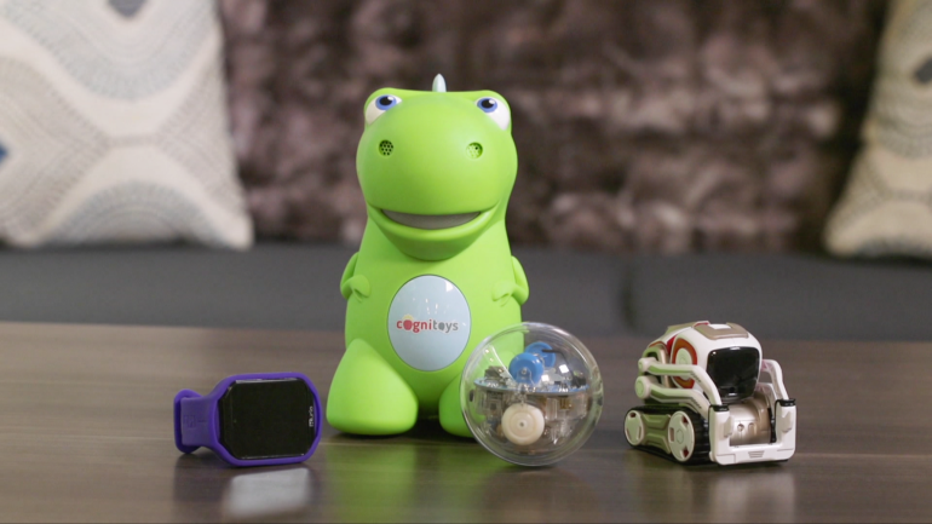Your child's privacy: Connected toys
As more and more toys connect to the internet, there are more and more chances for your child’s data to be hacked. Last year it happened to millions of kids playing with Vtech electronic toys. Recently, regulators in Europe recalled a children’s smartwatch because it posed a serious risk of being hacked. Consumer Reports reveals what parents need to know about the safety risks of connected smart toys.

Parents should be aware that connected toys are just like any other kind of internet of things device. They’re connected to your router, which goes to the internet. And they have the ability to collect information and send it back and forth.
They also can be hacked. But your information can’t be stolen and shared if you don’t hand it over in the first place
So what can parents do to keep their kids’ personal data safe?
First, they can lie.
Toys will often ask for things like your child’s name, address, or age, but you have to remember that hackers can use this information. So there’s nothing wrong with giving a fake birthday or using a child’s nickname instead of his or her real name.
Consumer Reports says parents should also set strong passwords on connected toys using a string of random words. Better yet? Use a password manager. But why is it so important to have a strong password on a kid’s toy? Basically, these items can be used as a gateway into your computer network, so you need to make sure everything is locked down.
Consumer Reports also suggests talking to your kids at a young age about what to share online and what to keep private.
Another option is to try to go for old-fashioned games, books, and puzzles.

All Consumer Reports material Copyright 2019 Consumer Reports, Inc. ALL RIGHTS RESERVED. Consumer Reports is a not-for-profit organization which accepts no advertising. It has no commercial relationship with any advertiser or sponsor on this site. For more information visit consumerreports.org.

